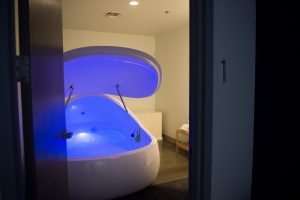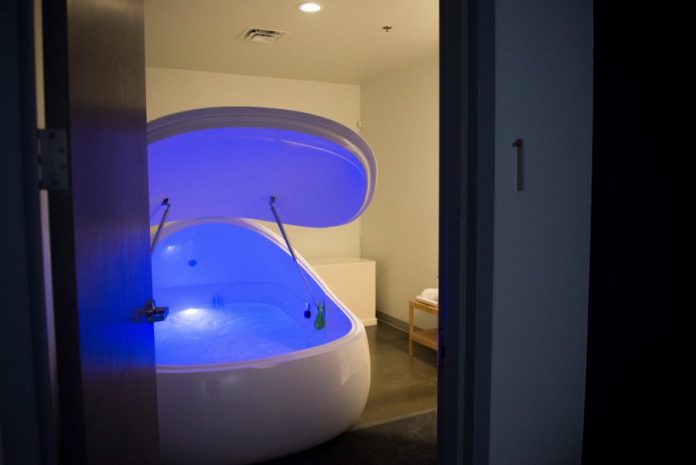
A wrongful death lawsuit has been filed in Denton County against The Float Spot, alleging the company’s negligence led to the drowning death of a 71-year-old woman in one of its aquatic sensory deprivation tanks.
Gloria Fanning died April 7, having spent eight days on life support following her first visit to the spa, located in Flower Mound.
Her family is suing The Float Spot and owner Raymond J. Thoma, and seeking over $1 million in damages.
Advertised as the “world’s first tranquility studio,” The Float Spot encloses customers in sensory deprivation tanks filled with highly salinated water that increases a person’s buoyancy. The company touts myriad health benefits, while downplaying any potential risks from the enclosed floatation tanks, according to a press release from Deans & Lyons law firm.
The Float Spot’s website states that because of the density of the solution, it is very difficult to roll over and the only way an accidental drowning could occur was “…if you can lay face down in the water and can tolerate the sting of the salt in your eyes, nose and mouth OR allow someone else to lay on top of you while you allow all of the above to happen.”
As a first-time customer, Ms. Fanning was given a brief orientation then left alone in the tank. According to the lawsuit, she later was discovered in a state of “distress” by an employee who initially called the business owner for guidance rather than calling 911 for assistance. Once paramedics arrived, they found Ms. Fanning unresponsive. She never regained consciousness.
“Gloria was promised an experience that was beneficial and completely safe. The company’s own website claims that accidental drowning is not possible, which is patently untrue and contradicts reports of others across the country who have died in a similar fashion,” said the Fanning family’s attorney, Michael Lyons, co-founder of Deans & Lyons.
Thoma relocated from Omaha, Neb., to Frisco to open his first location of The Float Spot in 2011. He opened his second spa in Flower Mound’s River Walk near Market Street in 2016. Thoma did not respond to our request for comment.
“This is a rapidly expanding industry that lacks any of the regulation necessary to ensure that customers are kept safe inside these aquatic sensory deprivation tanks,” said Lyons. “It is too late for Gloria, but this has to change.”








 GIF.gif)









